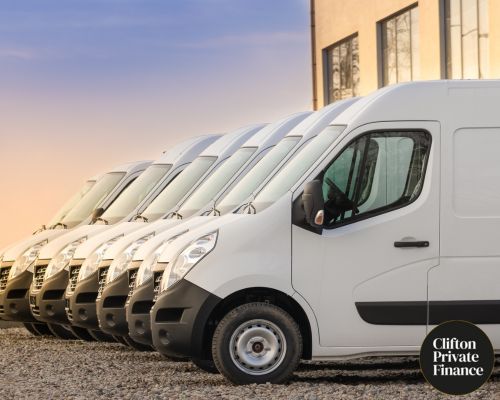Asset Finance - How it Works
Asset finance makes it easier for businesses to access the equipment, vehicles, and machinery they need without a hefty upfront payment.
By spreading the cost over time, companies can keep cash flowing while still investing in important assets. With options like hire purchase, finance leasing, and operating leases, there’s a solution for nearly every need — whether you want to own the asset long-term or just lease it with maintenance included.
Obtaining new equipment in its entirety can drain cash reserves, effectively stifling capital for growth. Asset finance is an important tool in a company’s repertoire, allowing the best of both worlds: equipment investment and fluid cash flow.
The sectors we operate in include:
- Agriculture e.g. Tractors, Barn Conversion, Dairy Equipment
- Construction e.g. Bulldozers, Cranes, Dumper trucks, Loaders
- Healthcare e.g. MRI Machines, X-ray Scanners
- Leisure e.g. Aviation, Gym & fitness equipment, Marine & Yacht Finance
- Luxury Assets e.g. Fine Art, Jewellery
- Manufacturing e.g. 3D Printing, Access Platforms, Bottling Plants, Compressors, Food Processing, Generators, Picking & Sorting Equipment
- Vehicle Car finance e.g. Aston Martin, Audi, Bentley, BMW, Ferrari, Lamborghini, Maserati, Mercedes, Porsche, Rolls Royce, Tesla
- Renewables & Green Energy e.g. Biomass Boilers, Solar Panels, Wind Turbines
- Retail & Hospitality e.g. Brewery Equipment, Catering Equipment, Shopfitting
- Transport & Logistics e.g. Forklifts, Haulage, HGVs, Coaches, Recovery Vehicles, Taxis, Tankers, Trailers, Transporters, Vans
- Waste Management & Recycling e.g. Containers & Skips, Crushers, Recycling Plants, Shredders
Key Takeaways
- Asset finance enables businesses to acquire vehicles, equipment, and machinery by spreading costs over time.
- It can help you manage your cash flow while still getting access to ownership options and potential upgrades.
- It also offers fixed repayments, technology upgrades, worry-free maintenance options.

The Three Types of Asset Finance
There are three main types of asset finance, each adjustable to cover the full spectrum of your business's needs.
On one side of the spectrum is the desire to own the equipment outright, paying for the asset over time with a view to permanent ownership - represented in the main by Hire Purchase.
On the other side are contracts designed to rent assets for the short or medium term, with no intention of long-term ownership - this is accomplished through Operating Lease agreements.
Sitting somewhere in the middle is Finance Leasing, a version of asset finance that offers the flexibility of end ownership without the obligation to adapt to businesses' changing needs.

1. Hire Purchase - Asset Finance for Eventual Ownership
Of the three forms of asset finance, hire purchase (HP) is the closest to a basic business loan. Its structure is a little specific, with a larger initial payment (called the ‘deposit’) but otherwise follows a familiar repayment structure of monthly payments that cover both the interest and a capital repayment on the loan principal.
The terms of the hire purchase agreement mean that the loan is essentially an asset-based secured loan tied to the equipment. In real terms, this means you don’t own the vehicle - you cannot sell it and it can be repossessed by the finance company should you fail to make repayments.
However, it is treated in almost every other way as if you do own it, thus responsibility for items such as insurance and maintenance are yours.
Hire purchase agreements may differ from one lender to another, allowing for flexibility in repayment structure, options such as a return after a time (often halfway through the term) if you are having difficulties making repayments or no longer want the equipment, and different interest rates.
Hire purchase is best for assets that will retain their value to you beyond the contract term, thus making permanent ownership financially sensible.
It is also excellent if you want unrestricted use and control of the asset.


2. Finance Leasing - Asset Finance for Flexibility
One of the greatest considerations of equipment investment and asset finance is ‘equipment lifespan’ and depreciation. Equipment lifespan represents when an asset is the optimal tool for the job, and depreciation is how much its value falls during that time.
Equipment lifespan can be affected by multiple factors. For example, wear and tear on the equipment leads to a point where maintaining it is no longer cost-effective, or obsolescence, when newer and more superior equipment renders the assets no longer optimal and an upgrade to the newer equipment is desired.
Finance leasing is a financial product that attempts to calculate the depreciation of the asset over the contract term. The repayments are structured so that you pay for that depreciation (plus a little profit for the finance company).
This example is oversimplified, forgoing other factors such as initial balloon payments, inflation, and lender fees and profit, but it does illustrate the basis for finance leasing.
During the term, you will have full use of the asset, though it will remain the property of the leasing company. At the end of the contract term, the leasing company will want to sell the asset to realise that final value; this can be to a third party or to yourself.
Thus, finance leasing has the flexibility that at the end of the term, you have the option to make one final balloon payment to permanently own the asset.
This flexibility means a finance lease has four options at the end of the contract term:
- Extend the contract - This is a renewal of the lease for another year or more, continuing in the same way as has been done so far
- Upgrade the asset - This is simply a return of the original asset and a new contract taken out on a more modern version.
- Purchase the equipment - You choose to pay one final balloon payment to buy the asset from the leasing company.
- End the lease - You hand back the asset and finish the contract.
During a finance lease, maintenance of the asset is typically your responsibility and if the equipment is returned at the end of the contract in a poor condition that lowers its final sale value, fees will be due to cover the difference.
However, the inverse is also true, and an occasional side effect of finance leasing is that when the assumed depreciation is significantly lower than anticipated, the asset sells for more than expected. The finance company reimburses you for some of the payments you have made.
These situations are rare, but they do happen.
Finance leasing is good for medium-length equipment ownership when the asset is likely to be superseded by a superior model, and permanent ownership offers no financial benefit. It is also suitable when the future is unknown, and decisions on ownership are best left to the end of the contract term.
Case study: Read our case study below on how we secured over £5m capital to aid business growth.

3. Operating Leases - Renting Your Equipment
An operating lease is closest in structure to a simple rental agreement. During an operating lease, the leasing company owns the asset in full and is responsible for its upkeep and maintenance.
Operating leases are fantastic for companies that do not want to deal with the day-to-day problems associated with asset ownership but want a package that relieves them of worry and responsibility.
One example is a vehicle operating lease. A car under a full operating lease can be driven without worry regarding maintenance. Should a mechanical failure occur, the car is taken to a garage, repaired and returned to you promptly.
Depending on the lease's specifics, a replacement car is likely to be provided to cover the period of repairs.
Some operating leases even include insurance, allowing you to drive the car without worrying about the hassles of ownership.
While comprehensive operating leases are typically more expensive in terms of monthly payments than other forms of asset finance, the worry-free approach is valuable. It allows you to concentrate on your business rather than the nitty-gritty of asset upkeep.
Operating leases are typically more short-term, with upgrades to the latest equipment undertaken at the end of each contract term if the asset is still needed.
Assets obtained under operating leases typically have more limitations than other asset finance options. Vehicles, for example, will have mileage restrictions, while other equipment will be restricted from modifications and customisations.
The Pros and Cons of Asset Financing
Pros:
- It allows you to spread the cost to get high-value equipment with little capital investment.
- You can upgrade to the latest technology without straining cash flow.
- Fixed repayments for efficient monthly budgeting.
- It offers a range of options to suit your business needs.
- Worry-free maintenance options.
- Typically more cost-effective than loans for equipment purchase.
- Some tax advantages (depending on asset finance type).
- Good asset finance management develops a strong business credit history, improving later finance opportunities.
Cons:
- Failure to make repayments will result in repossession.
- Contracts are tight, meaning you will be tied in for the length of the term.
- Early release fees may be considerable.
- Asset upkeep should be budgeted for (where applicable).
- Potential restrictions on use.
- Poor asset finance management can significantly impact future credit chances.











